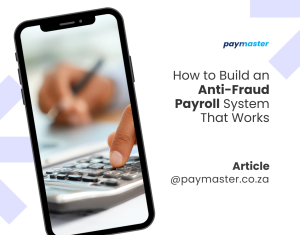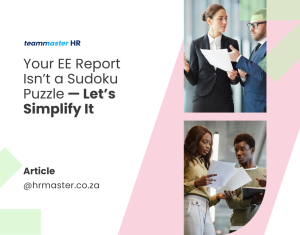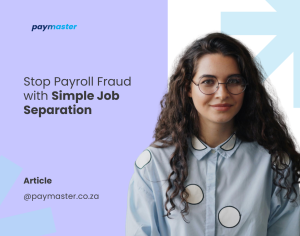
How to Prepare for Provisional Tax in August
As the August provisional tax deadline approaches, small business owners must ensure their financial records are accurate and up to date. Provisional tax is based on estimated taxable income, so having clean books is essential for submitting an accurate IRP6 return and avoiding underpayment penalties. Here’s how to prepare effectively, from reviewing your general ledger to aligning payroll and gaining a clear view of your business’s financial performance.

1. Accurate Books Make All the Difference
When getting ready for provisional tax, it’s very important that your bookkeeping is correct. Your IRP6 return is based on your estimated income. So, if your books have mistakes, SARS might think you’ve underpaid and charge you penalties. That’s why you should check all your income and expenses carefully before you submit your return.
Also, don’t forget to include things like retained earnings or anything else that could change how much tax you owe.
Mid-year is a good time to go over your financial records, clean them up, and make sure everything is in the right category. As a result, you’ll get a clearer picture of how your business is doing—and how much tax you’ll probably need to pay.

2. Clean Up Your General Ledger
Your general ledger is the heart of your financial records. So, it’s important to keep it clean and accurate. First, remove any duplicate entries. Then, check that every transaction is recorded and labeled correctly. If there are mistakes, your tax estimates could be wrong, which might cause problems later.
That’s why a mid-year cleanup is so helpful. It lets you catch small issues early—before they turn into bigger ones by the end of the year.

3. Align Records with Payroll and Supplier Payments
Another important step in getting ready for tax is checking that your payment records match your payroll and supplier payments. First, look at your supplier invoices. Then, compare them to your bank payments and your bookkeeping records. This helps you make sure nothing is missing or in the wrong place.
Next, check your payroll. Make sure all salaries and wages match what you submitted on your EMP201 forms and what’s on your employees’ payslips. Keeping everything consistent is very important—not just for tax, but also if SARS does an audit or review.

4. Understand Your Financial Performance
Preparing for provisional tax is also a good time to assess how your business is really doing. Use your financial reports to evaluate gross profit, net profit, and available cash reserves. These insights don’t just help you estimate your tax—they can also guide strategic decisions for the rest of the year.
Whether you’re planning to hire, expand, or cut back on costs, a clear view of your numbers will help you make better choices and stay on track.
Conclusion
Preparing for provisional tax doesn’t have to be stressful. With accurate bookkeeping, a clean ledger, aligned records, and strong financial insights, you can submit your IRP6 with confidence. Use this mid-year checkpoint to get your business organized and ready—not just for tax time, but for long-term success.





